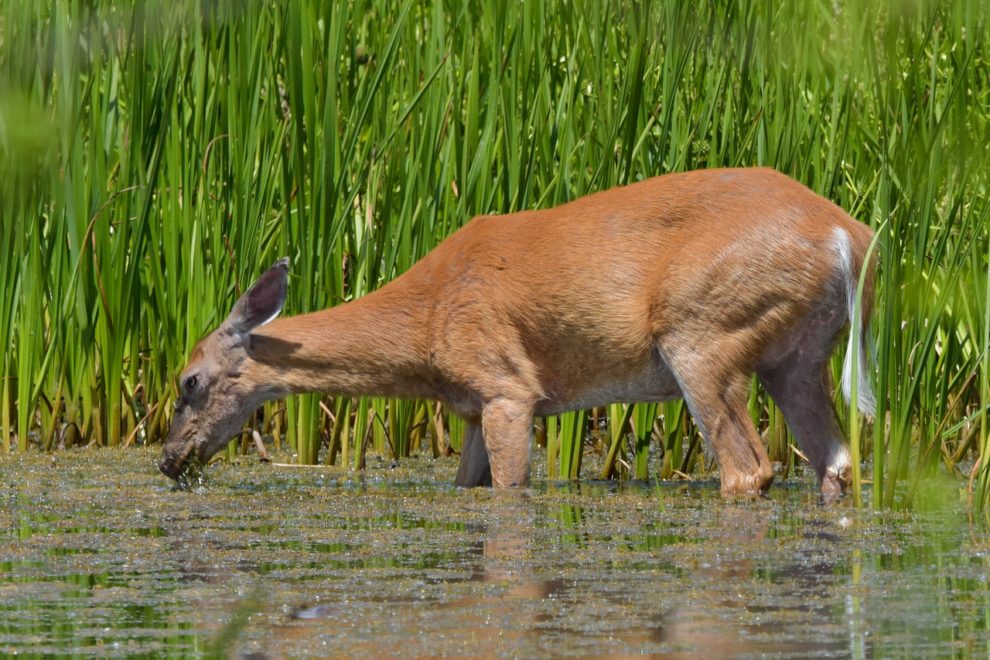The U.S. Department of Agriculture’s Animal and Plant Health Inspection Service (APHIS) recently completed a study that analyzed serum samples from free-ranging white-tailed deer for antibodies to SARS-CoV-2 (the virus that causes COVID-19). Results of the study indicate that certain white-tailed deer populations in Illinois, Michigan, New York, and Pennsylvania were exposed to SARS-CoV-2.
Samples were obtained opportunistically as part of wildlife damage management activities conducted by APHIS Wildlife Services across 32 counties in the 4 states. These samples were tested at APHIS’ National Wildlife Research Center and National Veterinary Services Laboratories. Antibodies to SARS-CoV-2 were detected in 33% of the 481 samples collected from January 2020 through 2021. None of the deer populations surveyed showed signs of clinical illness associated with SARS-CoV-2.
It is important to note that this surveillance was designed to determine exposure of deer to SARS-CoV-2 in their natural environment. It was not designed to determine whether the deer were replicating and shedding SARS-CoV-2.
APHIS supports a One Health approach to addressing animal diseases, including SARS-CoV-2. Widespread human infections with SARS-CoV-2 combined with human-wildlife interactions create the potential for spillover between people and animals. Studying the susceptibility of certain mammals, such as deer, to SARS-CoV-2 helps to identify species that may serve as reservoirs or hosts for the virus, as well as understand the origin of the virus, and predict its impacts on wildlife and the risks of cross-species transmission.
The finding that wild white-tailed deer have been exposed to SARS-CoV-2 is not unexpected given that white-tailed deer are susceptible to the virus, are abundant in the United States, often come into close contact with people, and that, more than 114 million Americans are estimated to have been infected with COVID-19, according to the U.S. Centers for Disease Control and Prevention (CDC).
APHIS is working closely with federal and state partners, including the Department of the Interior, the CDC, and the Association of Fish and Wildlife Agencies, to determine next steps. Results from this surveillance effort are currently being prepared for publication in a peer-review journal.
APHIS is a multi-faceted agency with a broad mission that includes protecting and promoting U.S. agricultural health, regulating genetically engineered organisms, administering the Animal Welfare Act, and carrying out wildlife damage management activities.
